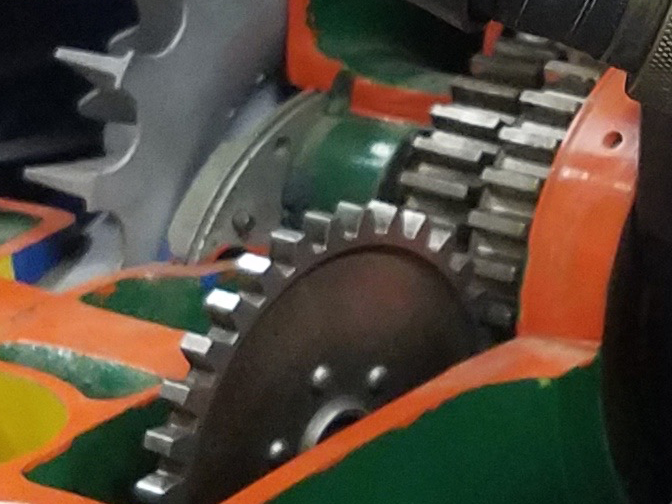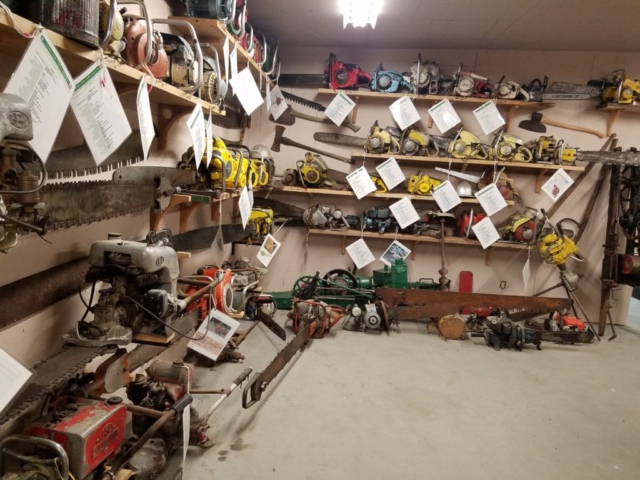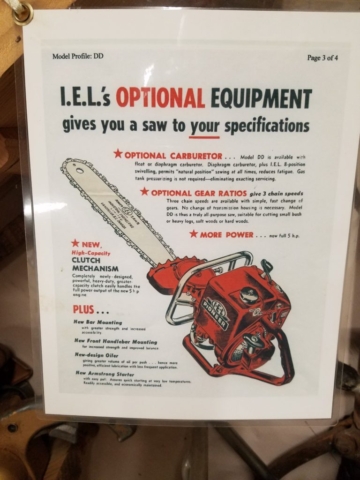At the fuel transfer station office, Wendy sat at her desk speaking to a deep-voiced man who I could not see. When I asked her where he was, he stepped out of a door. He was tall, craggy faced, muscular and handsome.
When he learned I wanted some kerosene, he told me I must be a sailor, which I confessed I was. He introduced himself as Lyle, and told me about the sailing courses he had taken, and how he would quit his job right now to join us. Wendy told him, oh no he wouldn’t. I countered he could join us for a short while if he would like, and he told me he was very interested.
As we walked outside, he told me had rented a 41-foot sailboat, but he hadn’t had the confidence to really sail it anywhere. His colleague, Vince, joined us. Lyle held my Jerry can and Vince poured from another 20-litre Jerry can. In those very few minutes we all told a few stories.
Lyle was learning to be a sea kayaker, and mountain biked many kilometers to and from work. But, his stories returned to his lack of confidence. It was, from his demeanor, his voice and his appearance difficult to reconcile.
When I went inside to pay Wendy, I mentioned this to her. She had commented, unbidden, what a wonderful group of men this was to work with. When I mentioned Lyle’s lack of confidence she told me she thought of him as the lion from the Wizard of Oz. It’s still an odd thing.
Another male colleague in the office commented, without irony or sarcasm, ‘‘Lyle is a delicate flower.’’
In Coal Harbour, we followed the signs leading to the museum and ended up at a boat ramp next to a gravel parking lot where a man was using a forklift to remove a deHavilland Otter from the water. An employee, watching the goings-on, called out to us as we turned into the parking lot, “looking for Port Hardy?”
No, the museum we answered. He pointed to an area for us to park, and when he noticed it was full he suggested we just find a place that we were comfortable with.
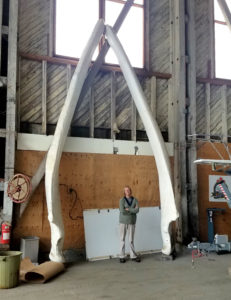
The large building had been an RCAF hangar during the second world war and then used for whale processing during the 1960s and 1970s when 10,000 whales were processed.
It was now a large storage shed with aircraft hangar style doors.
In the office, we greeted the two men behind the counter and asked about the museum. The older man was in his early 70s with naturally red hair and an odd speech impediment. He pointed to a door and told us the next three rooms were the museum. I asked if he was Joey. When he replied that he was I told him that Doug Kemp from Stryker had recommended we come here.
The museum was a wonderful collection of items related to the three PBY Cataline flying boat bases in this area. Jennifer and I have been to one, and now this was the second.
He also had a large collection of chainsaws and early gasoline engines.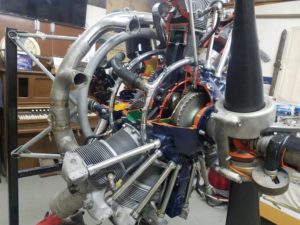 There was a cutaway Pratt & Whitney radial engine that I could not get enough of.
There was a cutaway Pratt & Whitney radial engine that I could not get enough of.
On the way out we spoke with Joey for a few minutes and then I said to him, “We were very sorry to hear about Ryan.”
Joey asked me how I knew Ryan. I told him the story about Klemtu, and speaking with my dad, and the quarter scale airplane.
Joey owns a small airline. The cutaway radial engine was an engine that he used in one of the airplanes, but the crank was “two one thousandths out of tolerance.”
Joey told us a little about about when Ryan flew for him before he started flying a Grumman Goose for another airline.
“Ryan was very good at PR. He had a talent.” It was clear that Joey was quite fond of him.
“He was putting his boat in at night. It was dark. He was going over to the island to a cabin he has there.
“It’s the head of the river there. It’s quite turbulent and you only have a few moments to get your engine running, otherwise you’re caught in the turbulence.
“They haven’t found him.” Joey didn’t say they haven’t found his body. He said they hadn’t found him.
The current consensus is that the pressure of the current has pushed his body to the bottom of the river and that’s where it is.
After a moment’s pause, I asked about the radial engine. Joey told us he had done all the cutaway work. He told us that we could spin the propeller and watch the engine move.
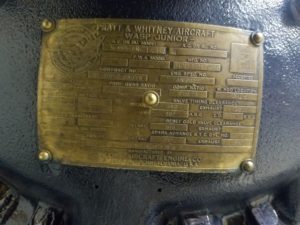 The second man came from behind the counter and walked us back into the room with the engine. He told us the history of this engine model. It was designed in the 1920s and was still flying today. He’d flown more than 1 million and a quarter miles with this engine.
The second man came from behind the counter and walked us back into the room with the engine. He told us the history of this engine model. It was designed in the 1920s and was still flying today. He’d flown more than 1 million and a quarter miles with this engine.
He pulled on the propeller and cranked the engine. We asked some questions and he pointed out parts of the engine for us, and then walked back to the front room with us. He walked behind the counter and sat back down in his chair.
We said goodbye to Joey and thanked the man for showing us the engine.
There was a third man, a young man sitting in a chair behind the counter. He never said a word, but listened to the conversations.
As we were driving away, Jennifer and I noticed that we had never introduced ourselves and never asked the names of the other two men.
Sitting here writing all this down, I think of the old adage that there are old pilots and brave pilots but no old brave pilots. I think about Ryan and the fatal mistake of putting the boat into the turbulent water at night, and of Lyle’s lack of confidence in himself. And of Joe, who told me in 2016 that he was going to stop fishing and build custom homes working from a barge in the islands just north of Vancouver.
No one would say that I’m a man’s man. I don’t think of myself as physically brave, but I don’t think of myself as lacking confidence. There is a phrase that Jennifer and I read often, “The Prudent Mariner.” I think of myself as that.
We’ve run into death four times in the three years that we’ve made this trip. Two were women who lived close to their life expectancy, and two were relatively young men who each fell out of a small boat. Neither were wearing life jackets.
Walter, the uncle of the young man who drowned, commented that if his nephew had been wearing a life jacket “we’d have found him.” It took a moment for me to understand that he didn’t mean the boy would be alive, the boy would’ve died of exposure in a few minutes, but they would’ve found his body.
The long, thin threads that we have been allowed to touch span and tie together the lives of the people we meet on this trip. I’ve lived my life in a world where it would be difficult to do something stupid enough to kill me. We spend our time now in a world where being stupid and dying as a result of it is a momentary lapse in judgment.
It doesn’t feel any different. And all of us who live in the world in which I spent my life know that one drink too many, falling asleep at the wheel, or stepping off a curb without looking can be just as deadly.

